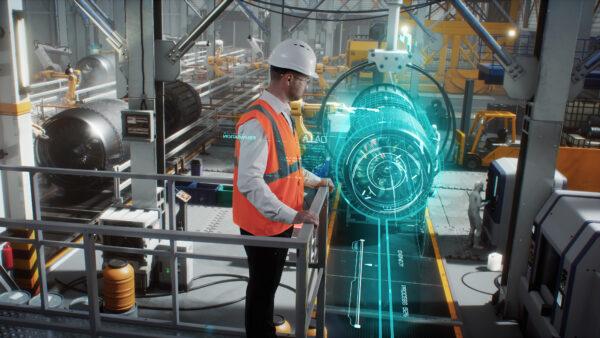
Born out of our deep expertise in engineering, manufacturing, logistics and improvement technologies, we bring an innovative approach to enhancing environmental credentials across the value chain.
Our focus is on driving sustainable supply chain performance.

Organisations are under intense pressure to slash carbon emissions. New and upcoming policy mandates organisations to disclose progress against carbon reduction targets, in support of the UK net-zero target for 2050. Transparency and traceability are now non-negotiable for consumer loyalty in their carbon reduction journeys. Overhauling supply chains is imperative for optimised, resilient, and sustainable operations. Those prioritising accelerated learning with a dedicated focus on sustainability are poised to lead.
Supply chains significantly contribute to environmental costs, responsible for 80% of the average company’s emissions footprint and 60% of global emissions. Managing and reducing product emissions throughout the supply chain is crucial.
Our supply chain services are designed to balance environmental responsibility with the traditional priorities of quality, cost, and service. We work with our customers to ensure sustainability compliant business and product & change projects.
Our approach designs and implements a benefit-funded programme comprising three interrelated workstreams: Process and Supply Chain Assessment; Defined Product Lifecycle Assessment; Facility Cost and Forecast Analysis.


By evaluating the existing supply chain and logistics footprint of original equipment manufacturer (OEM), we assess its adequacy in delivering sustainable and excellent customer service. We use our established supply chain maturity assessment to conduct an in-depth review of the supply chain strategy.
The comprehensive maturity assessment, along with its outcomes, are complemented by a supply chain value stream map and logistics network analysis. This combined approach aims to identify strategic-level misalignments or issues and propose initiatives for strategic improvement.
Evaluating the product lifecycle within the supply base plays a pivotal role in an organisation’s journey toward achieving net-zero. The lifecycle assessment (LCA) provides a defined carbon reference for each product assessed. This is vital to create a sound understanding of the impact of materials within the supply chain and create a defence to reduce within a sourcing continuous improvement programme. At Unipart, more than 98% of our Scope 3 emissions originate from material acquisition.
It is crucial for organisations to comprehend the carbon emissions involved in the production, usage, and disposal of products, encompassing Categories 10, 11, and 12 of Scope 3. Our approach involves a comprehensive analysis of the entire lifecycle of products in the supply chain. This enables the identification of key areas for enhancement and the initiation of engineering and sourcing changes.


The assessment of water, gas and electricity can accurately transform a building, Eco Insight is a purposeful tool from a resource control perspective, clearly understanding what facility resources are required to output products or services. Utilising our energy monitoring tool Eco Insight, the tool measures the Scope 1 and 2 emissions of a product and supports Scope 3. With a clear understanding of this information, businesses can make cost, output and carbon-balanced decisions in real-time.
The developed roadmap serves as a carbon reference, outlining improvements in sourcing options, resource usage (cost), process efficiency, and quality improvement. Long-term continuous improvements will establish a benefits-funded carbon-balanced programme, benefiting both OEM supply chain primes and suppliers, fostering commitment and reducing costs. Anticipating industry-wide enhancements, we foresee improved process efficiency, sequencing for OEMs, reduced Work In Progress (WIP), decreased road and air miles, reusable packaging options, and increased supply chain resilience.